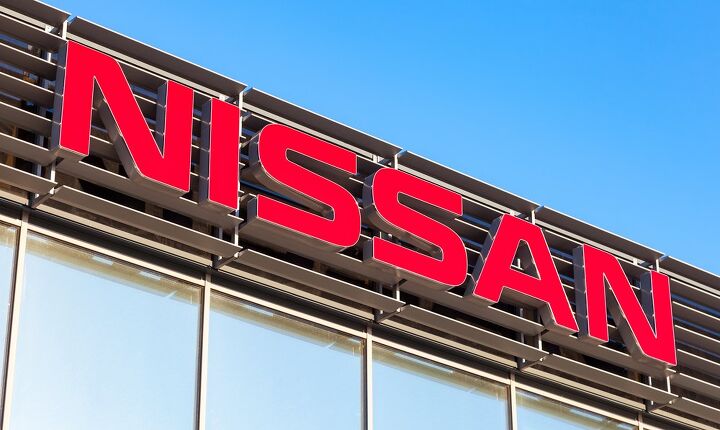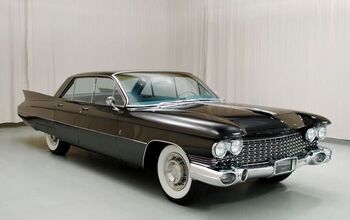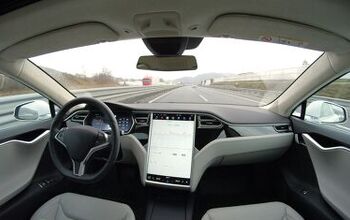Nissan Posts Predictable Quarterly Loss, Says Annual Losses Won't Be Too Bad

Despite predicting a rough year for itself long before the pandemic kicked the whole industry in the shins, Nissan is reporting a sunnier financial forecast. Thanks to its vast restructuring efforts and better-than-anticipated sales, the Japanese automaker has trimmed estimated annual operating losses by 28 percent.
According to Nissan, that should place the 2020 cash bleed (which doesn’t officially wrap until March 31st, 2021) somewhere around $3.2 billion instead of the original $4.5 billion. Considering it’s coming off an already bad year, this is actually good news. But it doesn’t mean there aren’t more hard times ahead, as Nissan has decided to evolve its restructuring plan to make sure it doesn’t lose more money than absolutely necessary.
CEO Makoto Uchida said the company could expedite its recovery phase by bolstering its restructuring efforts and said he expected Nissan to return to profitability sometime in 2021. While great news for shareholders, this means the 12,500 job cuts announced in 2019 are now 14,000 strong.
The company also seems poised to pull out of the European market (leaving it to Renault) while it focuses on improving sales in China and the United States. This comes while it’s also hoping to freshen the lineup with a dozen new models — though some are just heavy refreshes — and lower incentive spending. During Thursday’s presser, COO Ashwani Gupta also noted that the company was interested in embracing a global online sales model. COVID-19 hasn’t been particularly kind to retailers and the industry seems keen to get dealers out of the picture so it can start charging consumers a haggle-free price that’s probably closer to sticker than invoice.
[Image: FotograFFF/Shutterstock]

A staunch consumer advocate tracking industry trends and regulation. Before joining TTAC, Matt spent a decade working for marketing and research firms based in NYC. Clients included several of the world’s largest automakers, global tire brands, and aftermarket part suppliers. Dissatisfied with the corporate world and resentful of having to wear suits everyday, he pivoted to writing about cars. Since then, that man has become an ardent supporter of the right-to-repair movement, been interviewed on the auto industry by national radio broadcasts, driven more rental cars than anyone ever should, participated in amateur rallying events, and received the requisite minimum training as sanctioned by the SCCA. Handy with a wrench, Matt grew up surrounded by Detroit auto workers and managed to get a pizza delivery job before he was legally eligible. He later found himself driving box trucks through Manhattan, guaranteeing future sympathy for actual truckers. He continues to conduct research pertaining to the automotive sector as an independent contractor and has since moved back to his native Michigan, closer to where the cars are born. A contrarian, Matt claims to prefer understeer — stating that front and all-wheel drive vehicles cater best to his driving style.
More by Matt Posky
Latest Car Reviews
Read moreLatest Product Reviews
Read moreRecent Comments
- Ajla I did like this one.
- Zerofoo No, I won't miss this Chevrolet Malibu. It's a completely forgettable car. Who in their right mind would choose this over a V8 powered charger at the rental counter? Even the V6 charger is a far better drive.
- Offbeat Oddity Nope, I won't miss it. I loved the 2008-2012 Malibu, but the subsequent generations couldn't hold a candle to it. I think the Impala was much more compelling at the end.
- Zerofoo An almost 5000 pound hot hatch that fell out of the ugly tree and hit every branch on the way down? No thanks.
- Tassos Jong-iL This would still be a very nice car in North Korea.


































Comments
Join the conversation
Glad you like your Rogue but I will pass on any Nissan. Toyota has a CVT and so does Honda but both have not experienced the problems that Nissan has with them. If I wanted to save some money I would pick a Hyundai or Kia instead.
I won't buy a Nissan until they become less dependent on Renault and the Japanese have more control. The only Nissan I would have considered would have been the 2019 and before Frontier with a manual and a 4 cylinder. When Nissan was all Japanese they were just as good as Toyota and Honda. I hope you have good luck with your Rogue and if I were to get a Nissan it would be a lease as you have. I keep my vehicles a minimum of 10 years with one that I kept for over 20 years.